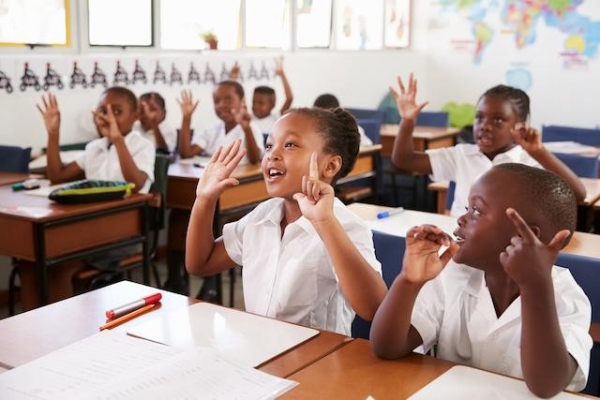themes related to teacher professional development consistently appear in response to the crisis. In Africa, teacher resilience has strongly emerged as a theme defining teacher-shared practices. The efforts to open up and create teacher support groups and teacher networking platforms during this pandemic like never before have demonstrated the concept of relationships as a fundamental principle of teacher resilience (Luthar, 2006).
Teacher research has followed a similar path, as it is happening in real-time when teachers exchange their ideas through open-access virtual platforms. This blog post highlights examples of teacher development efforts and provides examples of teacher resilience by reporting on the work of Africa TESOL and the first-ever Africa TESOL Online Symposium held on 15 August 2020.
New Trends in Teacher Development
As Berry et al. (2020) state, in response to the pandemic,
Teachers who may have spent a career in relative isolation are now building virtual networks with peers from around the world to share and adapt crowdsourced ideas that better prepare students with the skills to thrive in a rapidly changing world instead of just on a test. (p. 14)
Online platforms such as Zoom, Teams, and, in the case of Africa, WhatsApp, have enabled teachers across the globe to connect like never before. Adopting a social perspective to teacher agency (Imants & Van der Wal, 2020), these events have facilitated sharing the insider perspective for dealing with the contextual challenges of teaching during these difficult times, demonstrating a more personalized and contextualized approach to teacher development.
Examples of Teacher Resilience in Africa
The Africa TESOL Online Symposium demonstrated teacher resilience and agency with numerous examples in the context of the pandemic in Africa. At the symposium, Harry Kuchah shared examples of teacher efforts during the lockdown, such as the teacher from Mali who started using WhatsApp to assign her students homework and help them learn from home. Another teacher from Burkina Faso started a professional network for teachers and students to seek and find help when needed. Furthermore, Kuchah called for celebrating these success stories of teachers and adopting an “enhancement perspective” to teacher education in Africa. He affirmed that the best global practices were developed locally when teachers adapt and overcome contextual challenges.
In addition, teacher associations in Africa, such as NileTESOL, GETC, and BETA, in Egypt, Guinea, and Burkina Faso, respectively, shared activities during the pandemic that included organizing webinars, online discussion groups, and creating WhatsApp professional groups.
Other examples, published in the Africa TESOL Newsletter, Issue 7 and presented through the Weekly Discussions on the Africa TESOL YouTube Channel, demonstrated how teachers from Cameroon, Senegal, Egypt, Angola, South Africa, Morocco, Nigeria, Mali, Cote d’Ivoire, and Tanzania joined together to find solutions, often without external assistance, and illustrated how empowering teacher education efforts can originate from the ground up.








